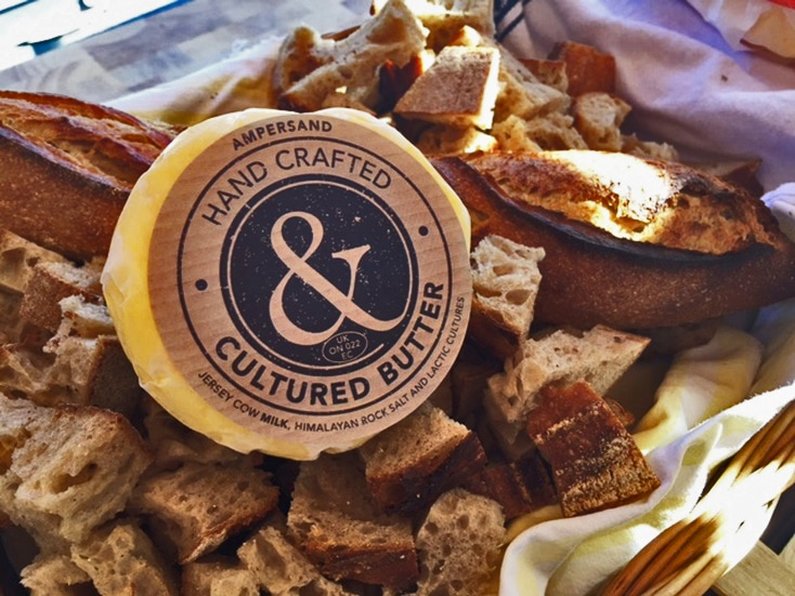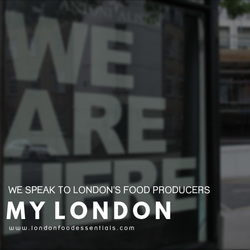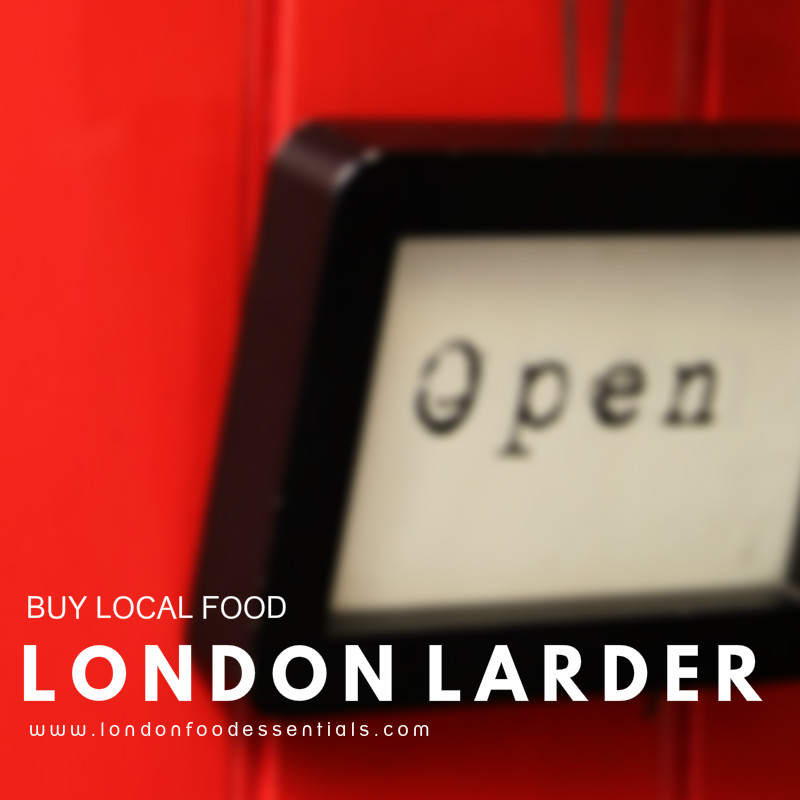|
IT'S one of the most recognised marks in the English language. The Ampersand that jumble of words “and per se &” that was once the alphabet’s 27th letter. Loved by many a designer and wordsmith for its arabesque style, the ampersand has effortlessly spanned lexicons of words and ideas. With a social fluency that predates social media, you could say that it was one of the first modern social networkers, a matchmaker par excellence. For Grant Harrington, such poetry is not lost. Explaining why he named his butter after this most poetic of punctuation marks, he says: “Butter sits perfectly with an ampersand - just think about it - bread & butter. For me, the importance of the ampersand is that it highlights the importance of staple ingredients needing to be at their upmost deliciousness.” Since launching his handcrafted cultured butter in late 2014, Grant’s commitment to the importance of ingredients has been obvious to anyone (of which there are many) who have tasted his butter. In fact, this attention to deliciousness has governed Harrington’s career from his time as a chef including a stint at Fäviken (Sweden) to his dedicated following at London’s Druid Street Market. Having dedicated twelve months to perfecting his recipe, his butter is made from the cream of local Jersey cows. Fermented for 160 hours, it is then churned, hand-kneaded and salted with Himalayan pink salt. The result is a butter that is unadulterated in its butteriness, and just plain addictive.
Having achieved almost a cult following for Ampersand, you can find his butter on the tables of many a Michelin-starred restaurant with it flavour worthy of its own award. So with a desire to understand what has people queuing at Druid Street Market, we asked Grant the following questions: What inspired you to start Ampersand? After working as a chef in fine dining restaurants, finally at Fäviken in Sweden, the last restaurant inspired me to learn why traditional and ancient butter-making techniques actually produced a more flavourful, buttery product. What was involved in perfecting the recipe? Perfecting the recipe began with starting with the perfect cream. Once I was completely assured that Jersey herd cows produced the most delicious cream I began fermenting it to make it taste even better. After a year of further research on dairy fermentation, building and installing a cabin on a small dairy farm in Oxfordshire, I felt comfortable to start supplying local Oxfordshire gastro pubs. This quickly lead to supplying Michelin-starred restaurants like Sat Bains and Story. What makes your butter so special? Small batch producers are really taking off right now and for a reason - we have the ability to focus all of our attention on what we produce. In my case having only one product and one fascination really pays off. My passion is for making butter taste more buttery. Initial ingredient quality is primarily the starting block. You are based outside of London. Where do you source your raw product from? Initially I sourced my only raw product, cream, from Jersey herd farms local to the farms here in Oxfordshire. Now that I am expanding quality comes before locality, so I am open to any UK jersey herd farms I can visit. Do you have a UK food hero? My parents and grandparents. It’s the most clichéd thing a cook can say but without an appreciation for good food and finishing my plate being driven into me from a young age, well, I wouldn't be where I am today. London has a burgeoning food scene. What changes have you seen in terms of the local produce being made in the city since you first started? I'm so happy to see urban farms and urban bee farms develop over London and the UK. Further, I'm happy to see restaurants fermenting everything they can get their hands on nowadays. It's a brilliant way to publicise and further develop ancient processes. Restaurants have pretty much made themselves producers by developing this and it's thus evolved the industry. In terms of support for local producers, what would you like to see more of? Local market support. What is a London secret that you are prepared to share? Other than The Snapery sourdough bread by Richard Snapes, I only come to London to eat. New Orleans style char-grilled oysters by Decatur London has been this year’s solid favourite London go to. You can order your butter here and collect it from Druid Street Market on Saturday. You’ll also find Grant’s butter in Fortnum & Masons and in various restaurants across the UK. ADDRESS BOOK Druid St. Market Druid Street t. @druidst Decatur London t. @DecaturLondon @DruidSt Saturdays @drinksatpamela Tues-Sun. The Snapery @thesnapery2 Sat-Bains Lenton Lane, Nottingham, NG7 2SA t.0115 9866 566 [email protected] Restaurant Story 199 Tooley St, London SE1 2JX t. 020 7183 2117
2 Comments
Leave a Reply. |
ARCHIVES
February 2017
|






